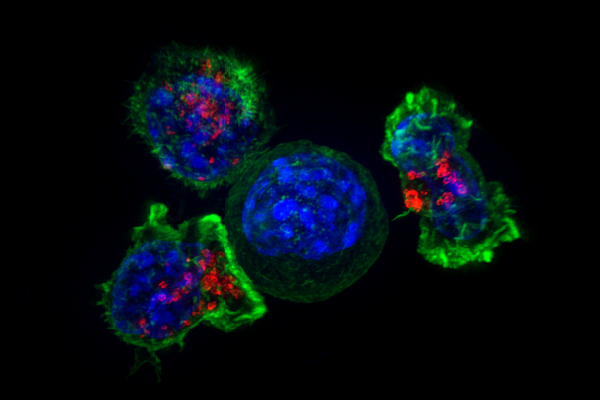Study provides insight on targeted therapies for colorectal cancer metastasis

A new study by University of Kentucky Markey Cancer Center researchers provides new insight on targeted therapy for colorectal cancer metastasis.
Published in Nature Communications, the study focused on Neuropilin-1 (NRP1), a transmembrane protein that has been connected to the progression of cancers, particularly metastasis. The researchers identified two novel human NRP1 splice variants in colorectal cancer, both defective in N-linked glycosylation modification.
This defect leads to a constant amount of the NRP1 variants shuttling between the cell surface and the inside of the cell upon stimulation of HGF growth factor; it also leads to a decrease in the levels of NRP1 variants' degradation so as to their accumulation on endosomes, the membrane-bound compartments inside a cell.
These NRP1 variants form a complex with MET and β1-integrin receptors and transport together with these receptors into endosomes. This complex provides persistent endosomal signals to activate the FAK/p130Cas pathway, thereby promoting colorectal cancer cell migration, invasion and metastasis. Additionally, the colorectal cancer cells that have formed NRP1 variants/MET/ β1-integrin complexes are resistant to drugs that inhibit MET tyrosine kinase activity, suggesting that colorectal cancer patients with these variants are likely to not respond to MET-targeted therapy.
The study was led by the lab of Qing-Bai She, associate professor in the UK Department of Pharmacology and Nutritional Sciences.
"These variants may serve as a predictive marker for colorectal cancer metastasis," said She. "Our findings provide a new avenue of exploration by blocking internalization or formation of the NRP1 variants/Met/β1-integrin complexes or alternatively by inhibiting their endosomal signals on activation of FAK/p130Cas pathway for targeted therapies of colorectal cancer metastasis."
More information: Xiuping Huang et al. N-glycosylation-defective splice variants of neuropilin-1 promote metastasis by activating endosomal signals, Nature Communications (2019). DOI: 10.1038/s41467-019-11580-4

















